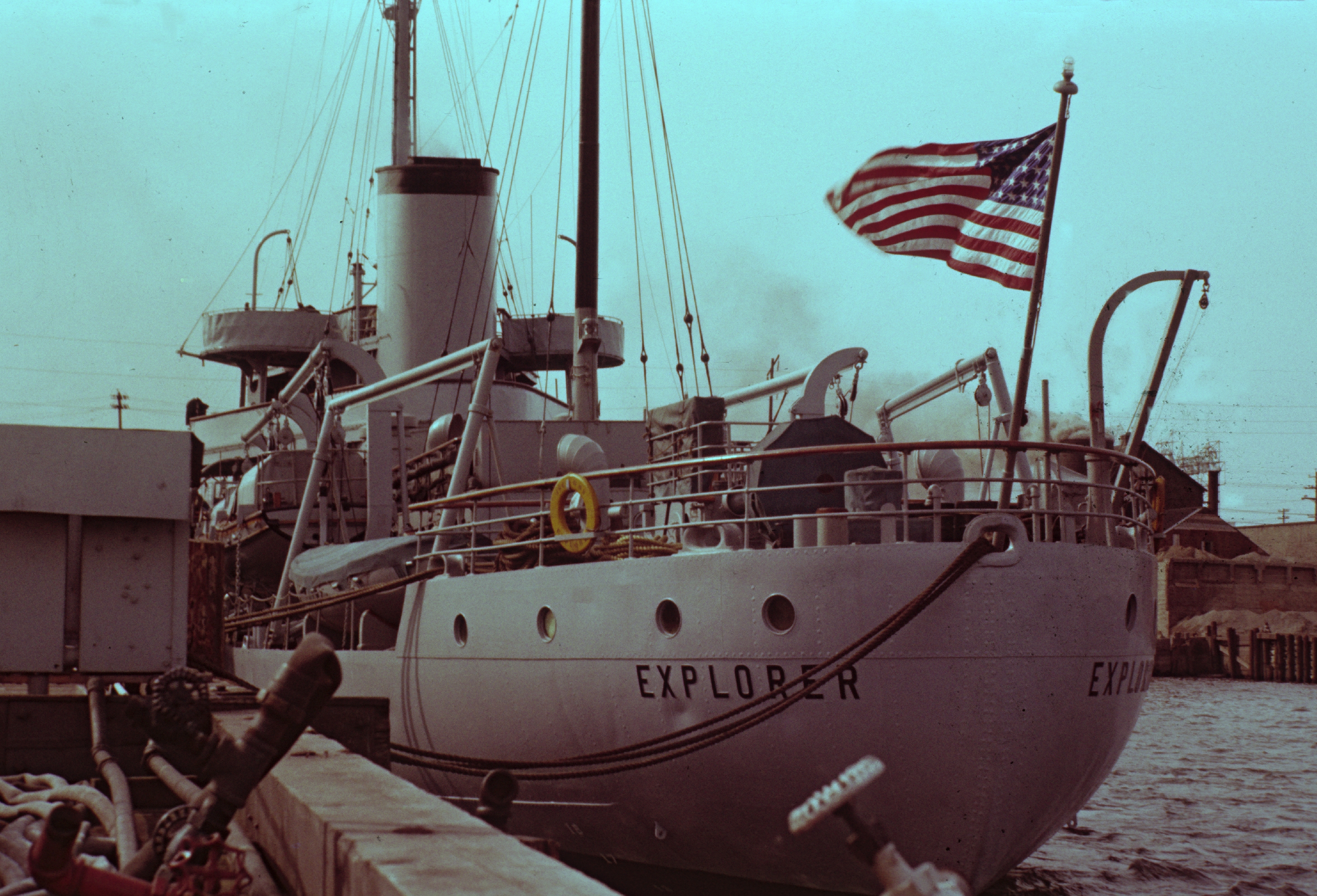MARINE SCIENCE - NORTHWEST FISHERIES SCIENCE CENTER (no. 21)
Jun 13, 2011
Northwest Fisheries Science Center The National Marine Fisheries Service, formerly the Bureau of Fisheries, is one aspect of NOAA (National Oceanic and Atmospheric Administration) and can trace its origins back to 1871. It manages living marine resources and their habitat within the United States and its Exclusive Economic Zone (water three to 200 miles offshore) through conservation and protective measures. This agency, comprised of six regional offices and eight councils, predicts the nation’s fish stocks, supervises fishery and fishing practices, and seeks to recover protected marine species while balancing commercial and recreational needs.  One of six regional offices, the Northwest Fisheries Science Center (NWFSC) arrived in Seattle in 1931, when the government relocated a research laboratory from Stanford University to the center’s current location at Montlake. The new research facility continued studies on Northwest salmon and began studies on other regional fish while the U.S. Army Corps of Engineers began plans for a series of dams on the Columbia River to harness its hydro-electric power. The Montlake laboratory sought to understand the life cycle of Northwest salmon, particularly in light of the impact dam construction would have on their migration. The laboratory’s scope of research expanded when it acquired the John N. Cobb, a modern research vessel, in 1949. With it, the NWFSC began to study other fish, like cod and Pollock. In the 1960s, the NWFSC made its first venture into aquaculture, launching a new site near Manchester to cultivate salmon. During the 1970s, as the Bureau of Fisheries reorganized under the umbrella of NOAA, the center shifted focus from “the exploration of new fisheries…to the management and protection of existing marine resources.”[1] Both the Montlake and Manchester facilities continue their research in marine ecosystems here in the Pacific Northwest.
One of six regional offices, the Northwest Fisheries Science Center (NWFSC) arrived in Seattle in 1931, when the government relocated a research laboratory from Stanford University to the center’s current location at Montlake. The new research facility continued studies on Northwest salmon and began studies on other regional fish while the U.S. Army Corps of Engineers began plans for a series of dams on the Columbia River to harness its hydro-electric power. The Montlake laboratory sought to understand the life cycle of Northwest salmon, particularly in light of the impact dam construction would have on their migration. The laboratory’s scope of research expanded when it acquired the John N. Cobb, a modern research vessel, in 1949. With it, the NWFSC began to study other fish, like cod and Pollock. In the 1960s, the NWFSC made its first venture into aquaculture, launching a new site near Manchester to cultivate salmon. During the 1970s, as the Bureau of Fisheries reorganized under the umbrella of NOAA, the center shifted focus from “the exploration of new fisheries…to the management and protection of existing marine resources.”[1] Both the Montlake and Manchester facilities continue their research in marine ecosystems here in the Pacific Northwest. 
 One of six regional offices, the Northwest Fisheries Science Center (NWFSC) arrived in Seattle in 1931, when the government relocated a research laboratory from Stanford University to the center’s current location at Montlake. The new research facility continued studies on Northwest salmon and began studies on other regional fish while the U.S. Army Corps of Engineers began plans for a series of dams on the Columbia River to harness its hydro-electric power. The Montlake laboratory sought to understand the life cycle of Northwest salmon, particularly in light of the impact dam construction would have on their migration. The laboratory’s scope of research expanded when it acquired the John N. Cobb, a modern research vessel, in 1949. With it, the NWFSC began to study other fish, like cod and Pollock. In the 1960s, the NWFSC made its first venture into aquaculture, launching a new site near Manchester to cultivate salmon. During the 1970s, as the Bureau of Fisheries reorganized under the umbrella of NOAA, the center shifted focus from “the exploration of new fisheries…to the management and protection of existing marine resources.”[1] Both the Montlake and Manchester facilities continue their research in marine ecosystems here in the Pacific Northwest.
One of six regional offices, the Northwest Fisheries Science Center (NWFSC) arrived in Seattle in 1931, when the government relocated a research laboratory from Stanford University to the center’s current location at Montlake. The new research facility continued studies on Northwest salmon and began studies on other regional fish while the U.S. Army Corps of Engineers began plans for a series of dams on the Columbia River to harness its hydro-electric power. The Montlake laboratory sought to understand the life cycle of Northwest salmon, particularly in light of the impact dam construction would have on their migration. The laboratory’s scope of research expanded when it acquired the John N. Cobb, a modern research vessel, in 1949. With it, the NWFSC began to study other fish, like cod and Pollock. In the 1960s, the NWFSC made its first venture into aquaculture, launching a new site near Manchester to cultivate salmon. During the 1970s, as the Bureau of Fisheries reorganized under the umbrella of NOAA, the center shifted focus from “the exploration of new fisheries…to the management and protection of existing marine resources.”[1] Both the Montlake and Manchester facilities continue their research in marine ecosystems here in the Pacific Northwest. 
[1]? Northwest Fisheries Science Center, Celebrating 70 Years of Cutting Edge Fisheries Research (Seattle, WA: Northwest Fisheries Science Center, 2002), 13.




